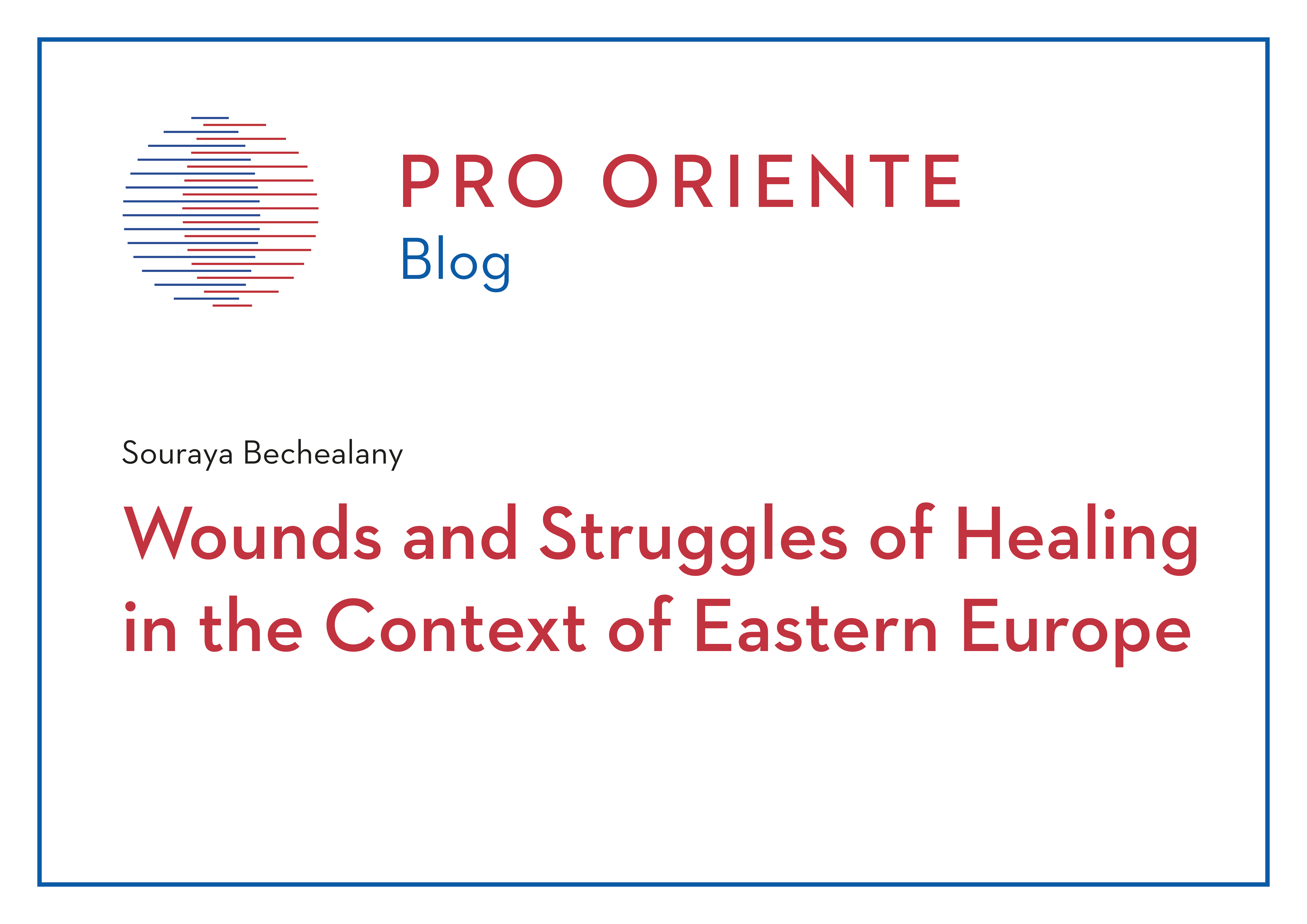Wounds and Struggles of Healing in the Context of Eastern Europe
22. September 2025
Thema: Healing of Wounded Memories

We have just gone three days on the topic of the healing of memories wounded by the lack of mutual love among Christians. It was asked to listen to you sharing about your wounds and your struggles of healing in the context of Eastern Europe, your common and ecumenical home.
I share with you five ways that resonated in me, as a Christian of the Middle East.
On Wounds
The first way put forward the gravity of the wounds. Prof. Smytsnyuk spoke of wounds with insistence. The conclusion of his talks resonates with my experience in the Middle East.
In fact, in my context also, wounds cry out louder than violence itself. They guide minds and communities. Theyoppose communities to communities, religion to religion, denomination to denomination, ideology to ideology,ethnicity to ethnicity. The complexity of the situation often drives people to despair, to migrate, but avoid violence.
However, wounds are not directly caused by religion, ethnicity or race. They are inherent to our humanity. They are rooted in our hearts which refuse to acknowledge others. Therefore, they are instrumentalized for purposes thathave nothing to do with truth, justice or peace.
My own history has taught me to remain vigilant, even suspicious, in the face of this instrumentalization. And Iagree with what has been underlined in one of the groups, as follows: “Wounds are an instrument of mobilization,as an alibi to wound others. However, truth must be articulated.”
Finally, the other is not hell as Voltaire always asserted. The other is our brother/sister and the path of each of us to Heaven and Eternity (Mt 25). For God is communion, and in God there is no exclusion.
On Confessionalism and Narratives
On the second level, I will refer to Prof. Wooden’s conclusion. She said: “Considering current political climate,it is likely that confessionalist polemical assessments will continue to dominate the historiography of the Union ofBrest for a long time. Polemics is not a search for truth, but – at best – a defense of something already accepted astruth.”
What Prof. Wooden highlighted resonates in me. The Middle East is often blinded by the polemics where each one defends his clan as possessor of the truth.
That is exactly where the problem lies. In fact, the subjectification of the truth leads to the plurality of narratives,freezes the tentative of dialogue, and generates the phenomena of polarization.
How to break the circle? Some of you proposed counter narratives, some others talked about alternativenarratives. As Christians, we are invited to go beyond. It is my third resonance.
On Polarization versus the Synodal Process
Pope Francis reminds us that the unity we seek is not uniformity but unity in diversity. Taking inspiration from Romano Guardini, the Pope describes this unity using the dialectic of polar opposition. During the Synod onConsecrated Life (1994), J.M. Bergoglio explained this dynamic: “A tension, for its life to be maintained, cannot beresolved by assimilation of one of the poles to the detriment of the others, nor by a synthesis (of a Hegelian type)that annuls the polarities. The tension (in this case the ecclesial tension) must be resolved on a higher level, thatwould not be a synthesis, but a resolution that virtually contains the tensioned polarities”[1].
What does it mean for us in the context of ecclesial divisions and wounded memories? We are called to go beyond counter or alternative narratives that could consolidate polarizations. As Christians, we are called to create togethera higher level, a new space, that will embrace the tensioned polarities! This new space will be inspired by the Lord and his Holy Spirit in a synodal process: “For where two or three gather in my name, there am I with them.” (Matthew 18:20).
On Hierarchies versus local Communities
I heard deeply what you are experiencing on the local level, wondering if you are acting correctly. In fact, faced with hierarchies paralyzed by the spirit of this world, with a double mind, deeply hypocritical, a force frombelow counterbalances this counter-testimony. It is the strength of local communities that come together, act together and bear witness together. The groups mentioned several examples that illustrate this local ecumenical reality: the priests who put parishes together, the brides and grooms of different denominations who successful build families together, etc. That is the living Church, the local and Eucharistic Church!
On Truth
“To the Jews who had believed in him, Jesus said, ‘if you continue in my word, you are really my disciples andyou will know the truth, and the truth will set you free.’” (John 8: 31-32). The truth is not a concept, nor an ideal. The truth is Jesus Christ in person.
We are called to walk with him, in a synodal process, through the prayer of the heart which can help, for it is a wayto dispel outside thoughts and bring our attention back to the holy name of Jesus. Thanks to Dr Bauer for giving us, today, the opportunity for a return to this unique Truth, the Source.
We are also called to walk with Jesus Christ through the Eucharist, the path of forgiveness and healing. There, wecelebrate together the memorial that heals wounded memories, embraces polarized persons, heals Communities andChurches.
Prof. Dr. Souraya Bechealany
[1] Bergoglio J.M., « La vida consagrada y su misión en la iglesia y en el mundo », n. 3, in Teología 22/66 (1995) 203-212, here 204.



